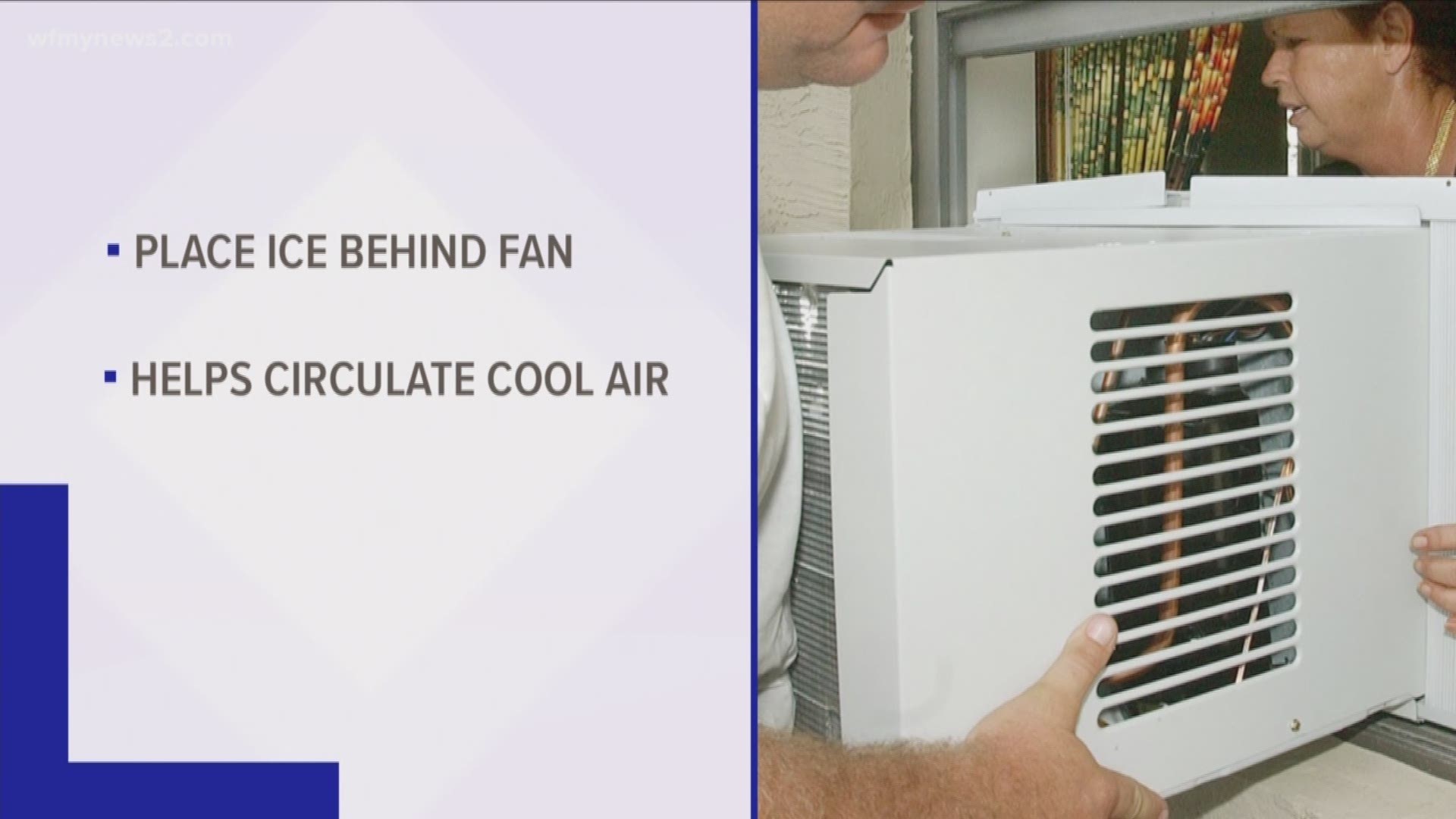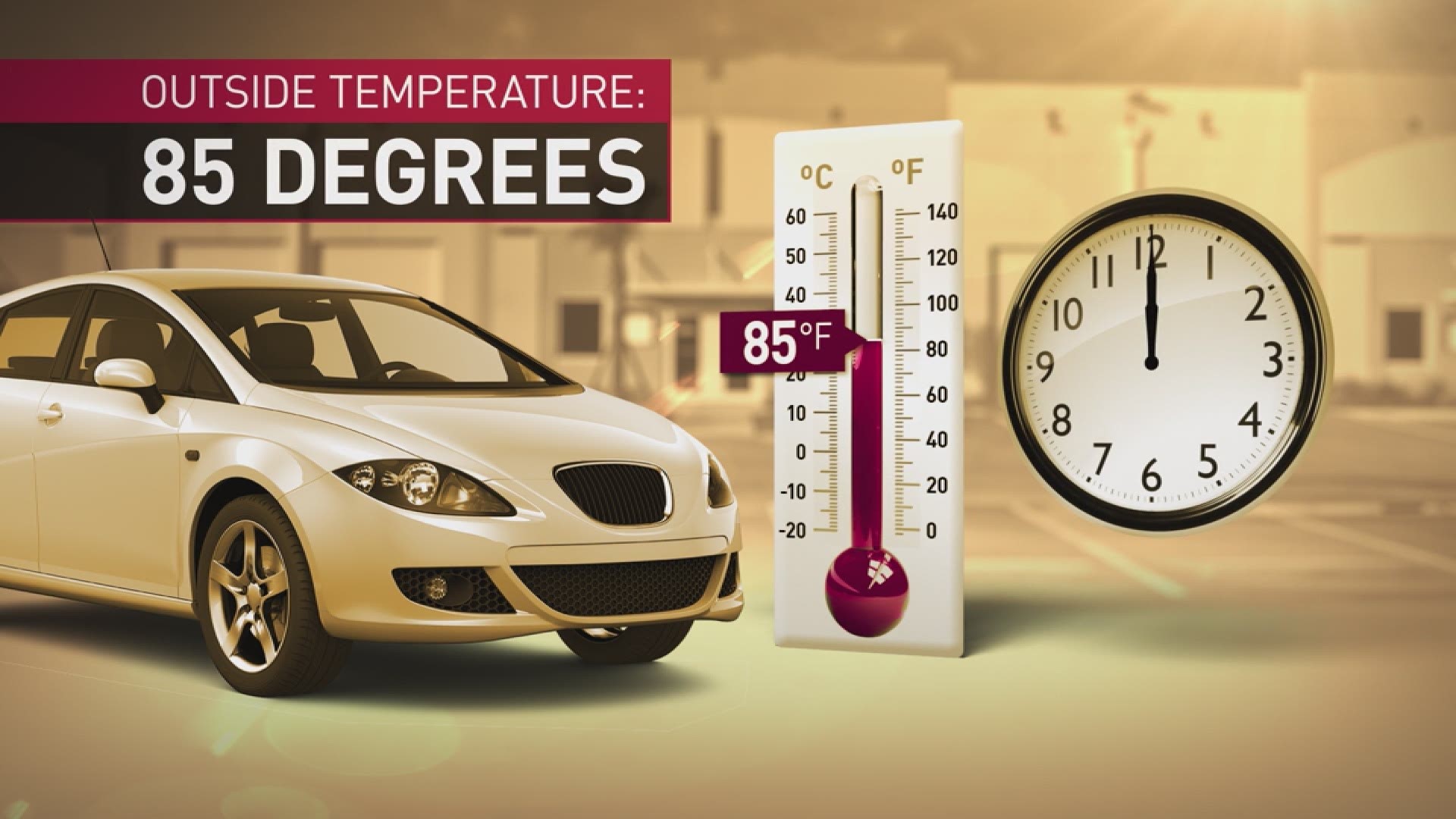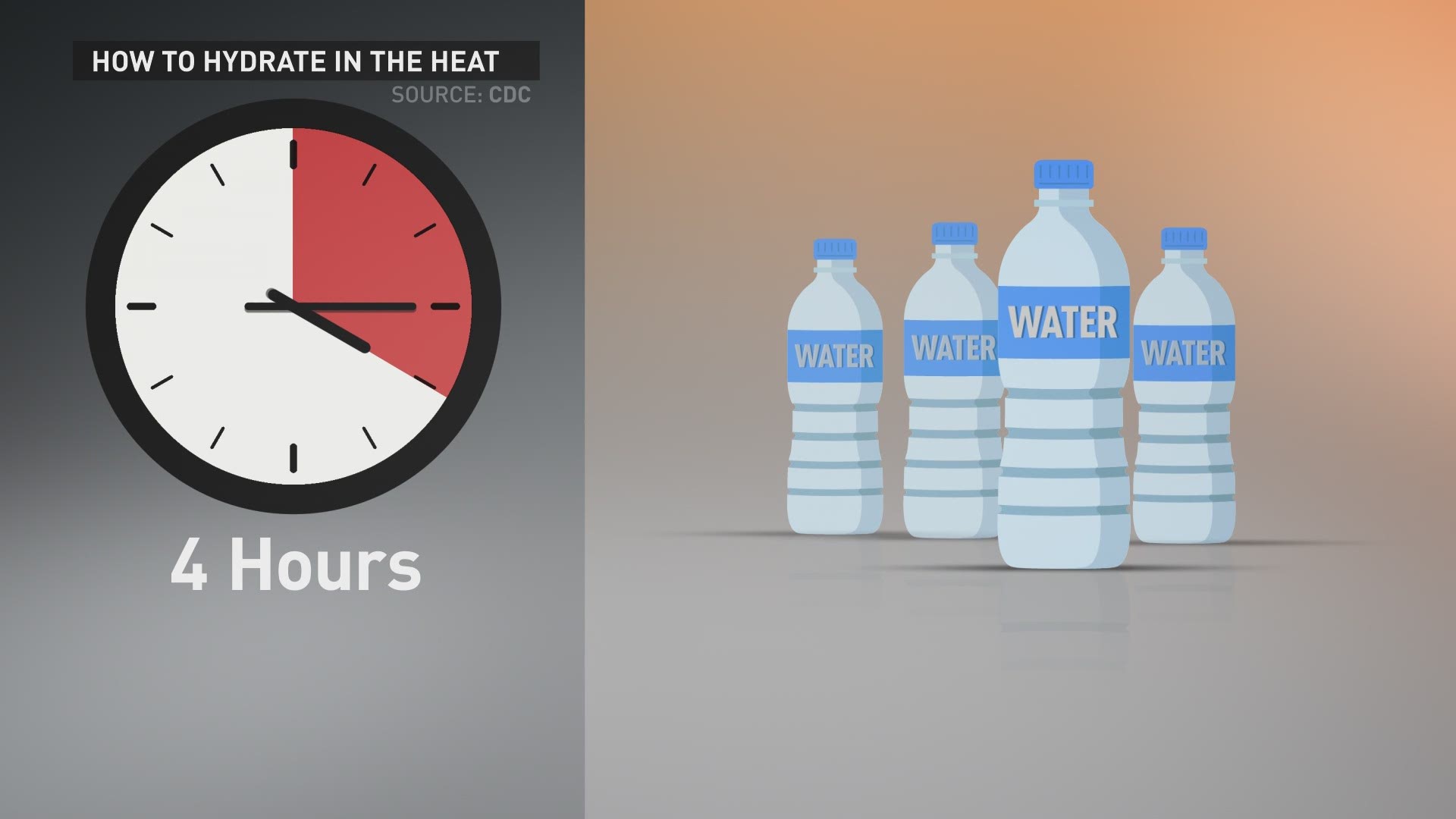Heat Kills | What You Need To Know To Keep Your Family Safe
WFMY News 2 wants to make sure you have all the resources you need to keep your family safe right at your fingertips.
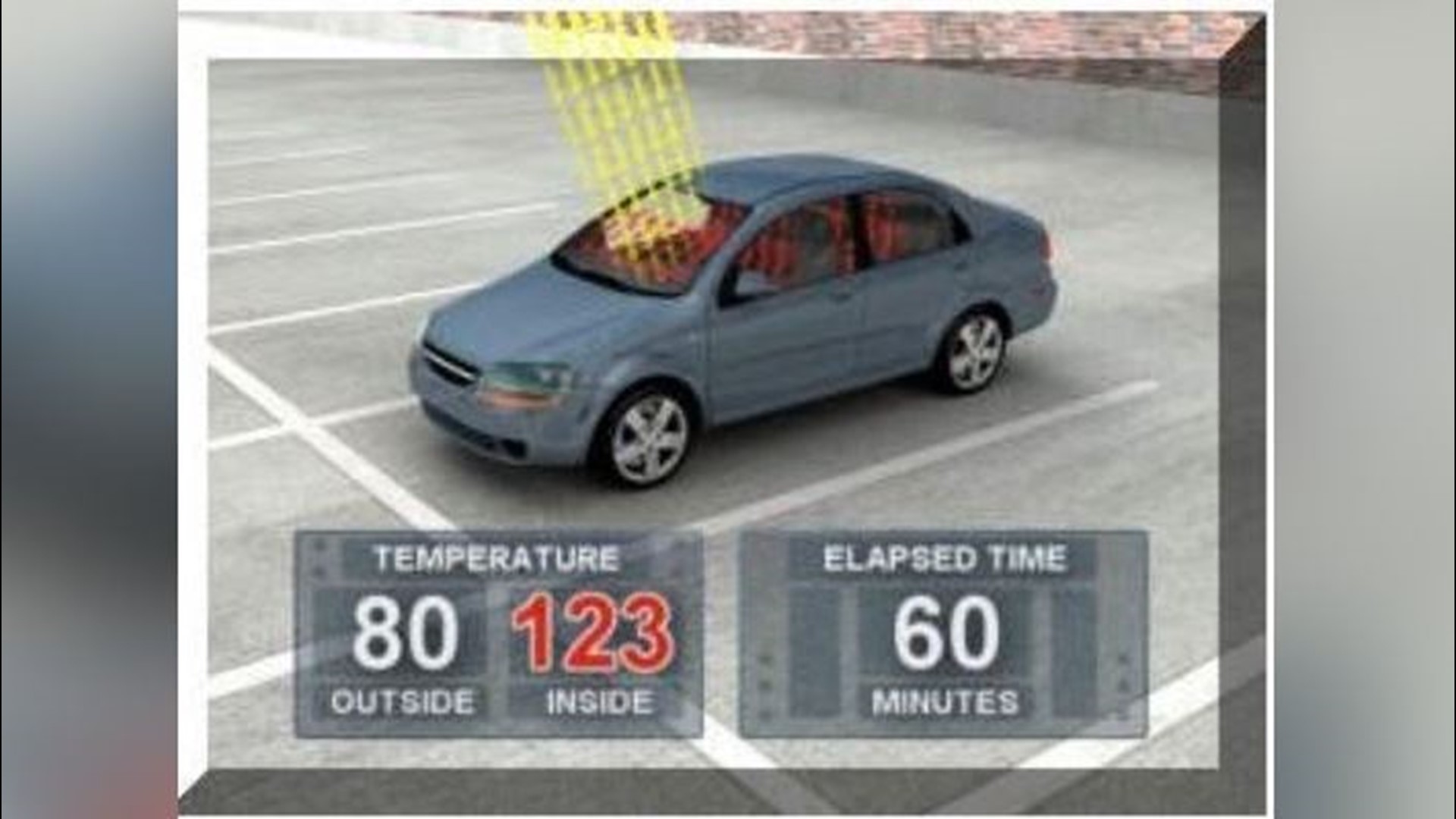
WFMY News 2 wants to make sure you have all the resources you need to keep your family safe right at your fingertips.
Heat kills. It's one of the leading weather-related killers in the United States.
That's why WFMY News 2 wants to make sure you have all the resources you need to keep your family safe right at your fingertips. We're going to provide you with information for spotting heat-related illnesses, how to respond in an emergency and other resources all in one place.
Warning and Advisories- take a moment to find out the differences.
From NOAA
Excessive Heat Watches: are issued when conditions are favorable for an excessive heat event in the next 24 to 72 hours. A Watch is used when the risk of a heat wave has increased but its occurrence and timing is still uncertain. A Watch provides enough lead time so that those who need to prepare can do so, such as cities officials who have excessive heat event mitigation plans.

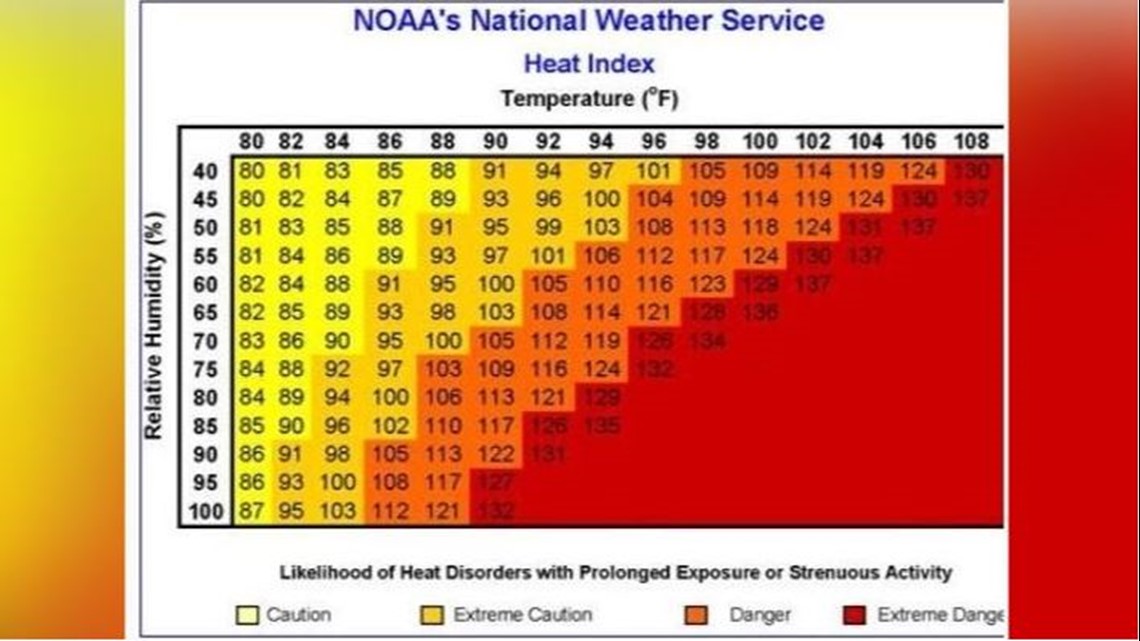
Excessive Heat Warning/Advisories: are issued when an excessive heat event is expected in the next 36 hours. It's issued when an excessive heat event is occurring, is imminent, or has a very high probability of occurring. The warning is used for conditions posing a threat to life. An advisory is for less serious conditions that cause significant discomfort or inconvenience and, if caution is not taken, could lead to a threat to life.
What you need to know about a heat wave: It's a prolonged period of excessive heat, generally 10 degrees or more above average, and often includes excessive humidity.
Check It Out: American Red Cross Heat Wave Safety Checklist
Each year dozens of children and an unknown number of pets left in parked vehicles die from hyperthermia.

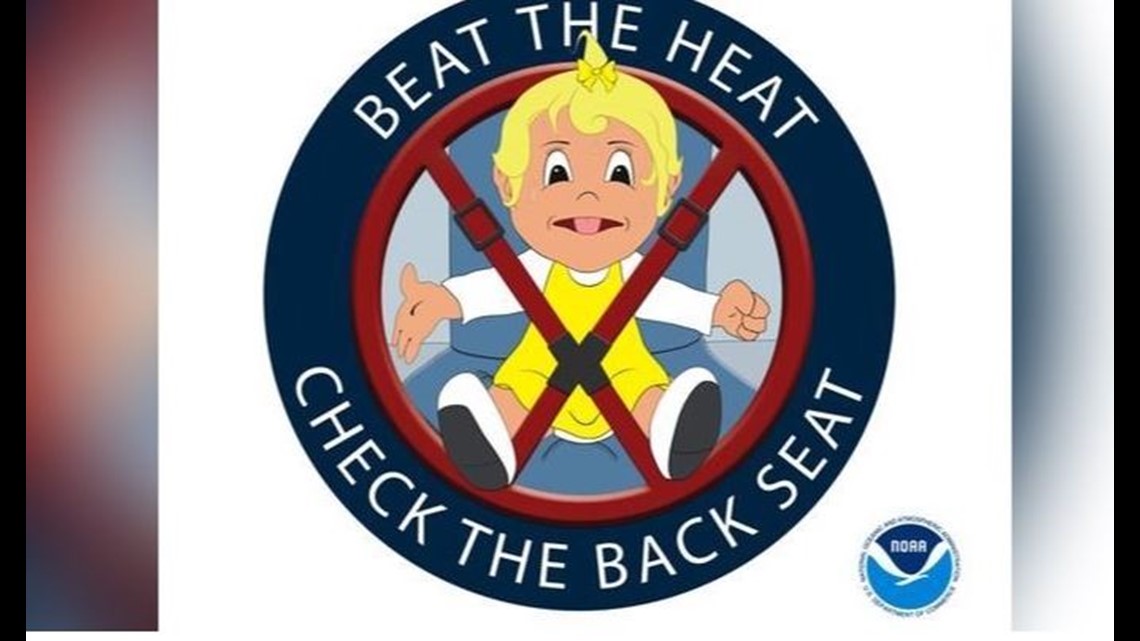
Check It Out: Shoe Trick Will Help Prevent Child Deaths In Hot Cars
Watch: This video of just how quickly a car heats up provided to NOAA.
Remember summer is a time kids go to camp and you want to make sure your child knows the signs of heat-related illnesses. It's also a time for vacations, yard work, exercising, playing golf, or going on a hike but family fun can turn into a matter of life or death in an instant.
Find out what you need to know about heat cramps, heat exhaustion, heat stroke below.
Heat-Related Illness Symptoms and First Aid
From NOAA
HEAT CRAMPS
Symptoms:
- Painful muscle cramps and spasms usually in legs and abdomen
- Heavy sweating
First Aid:
- Apply firm pressure on cramping muscles or gentle massage to relieve spasm.
- Give sips of water, if nausea occurs, discontinue water
HEAT EXHAUSTION
Symptoms:
- Heavy sweating
- Weakness
- Cool, pale, clammy skin
- Weak pulse
- Possible muscle cramps
- Dizziness
- Nausea and vomiting
- Fainting
- Normal temperature possible
First Aid:
- Move person to a cooler environment
- Remove or loosen clothing
- Apply cool, wet cloths
- Fan or move victim to air conditioned room
- Offer sips of water. If nausea occurs, discontinue water. If vomiting continues, seek immediate medical attention.

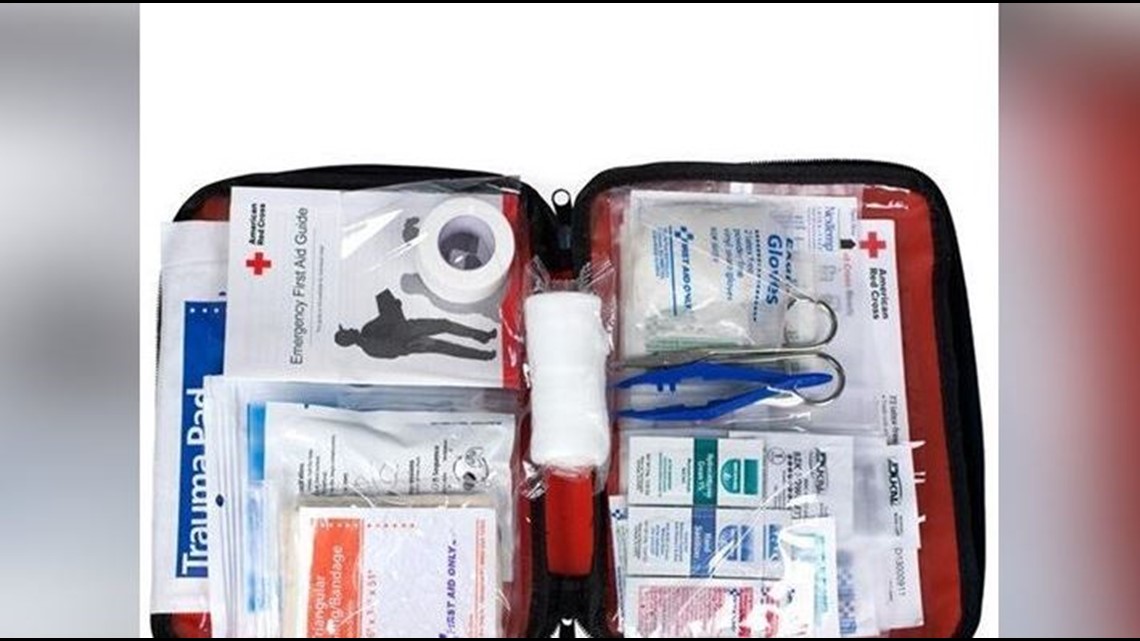
HEAT STROKE (or sunstroke)
Symptoms:
- Altered mental state
- Possible throbbing headache, confusion, nausea, dizziness, shallow breathing
- High body temperature (106°F or higher)
- Skin may be hot and dry, or patient may be sweating
- Rapid pulse
- Possible unconsciousness
First Aid:
- Heat stroke is a severe medical emergency. Summon emergency medical assistance or get the victim to a hospital immediately. Delay can be fatal.
- Move the victim to a cooler, preferably air-conditioned, environment
- Reduce body temperature with a water mister and fan or sponging
- Use fan if heat index temperatures are below the high 90s
- Use extreme caution
- If temperature rises again, repeat process
- Do NOT give fluids
Check It Out: Expert Tips: Summertime First Aid

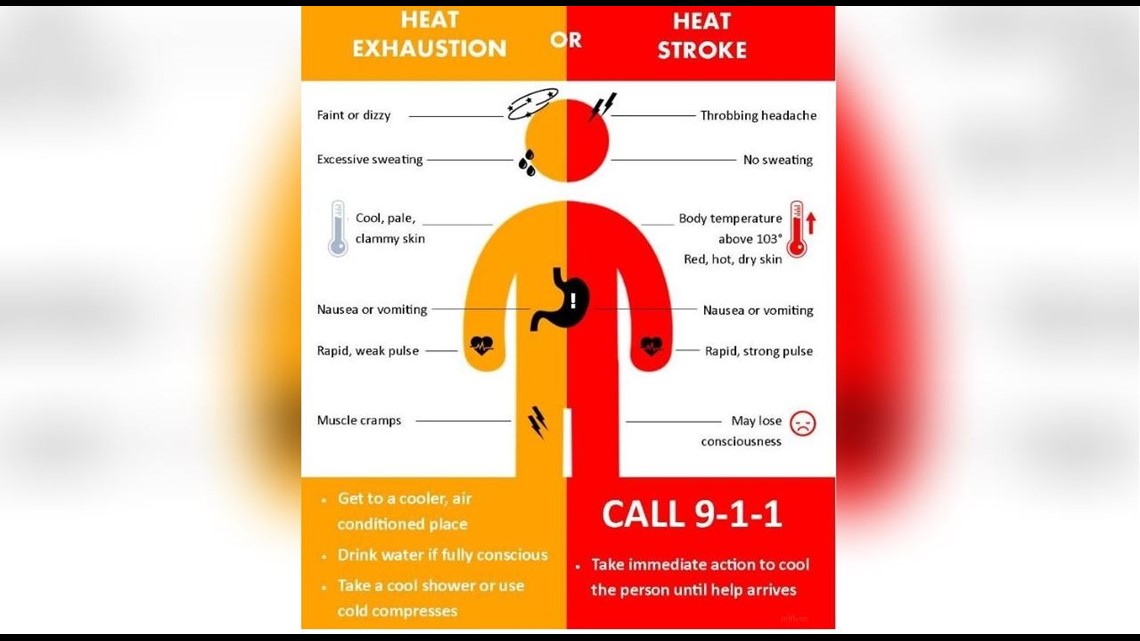
Check It Out: Playground Equipment Can Burn Children
WFMY News 2 Social Media
Follow Us on Twitter
@WFMYWeather
@WFMY
@TimBuckleyWx
@tkweather
@EdMatthews2
@EricChilton
Check out the WFMY News 2 Weather page on our site.
► Make it easy to keep up to date with more stories like this. Download the WFMY News 2 App: Apple Users, Android Users


